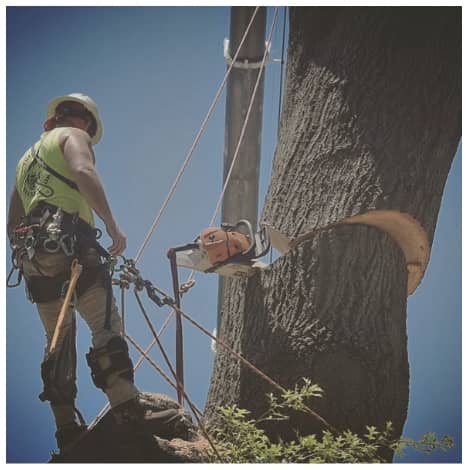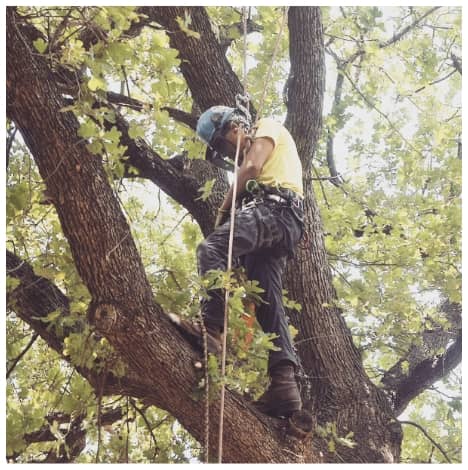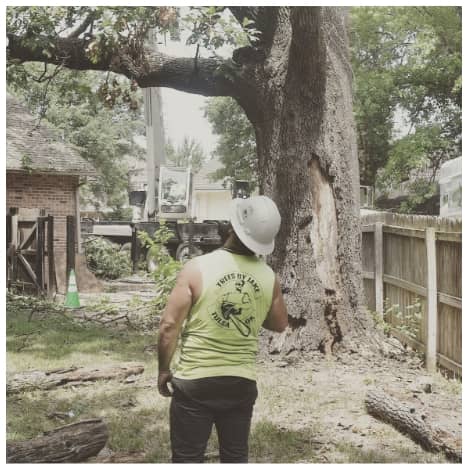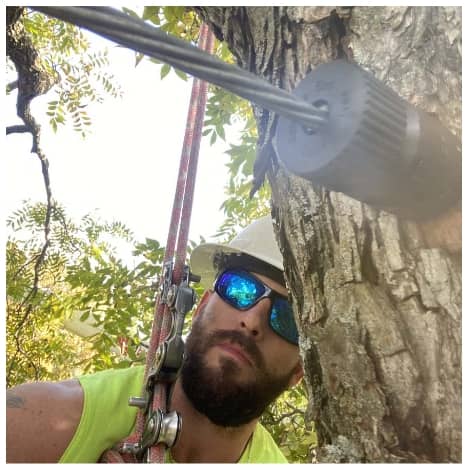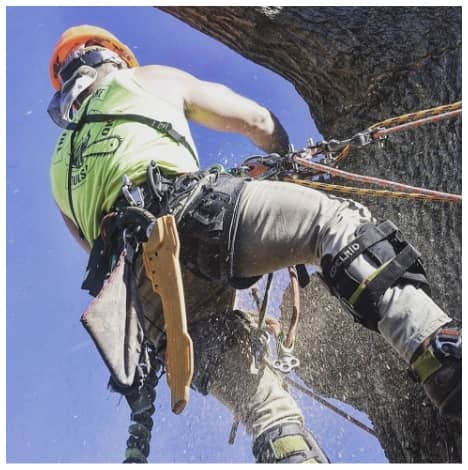
Trees That Are Dangerous To Pets
Summer is just around the corner. It’s a time of year when people, and pets, spend more time outside. There is nothing like relaxing on the back porch listening to the hum of the cicadas, but if you have certain types of trees on your property, you should be aware of the dangers they can present to some pets. You may need to have them trimmed, cut, or removed entirely.
Below is a list of trees found in Tulsa that can be dangerous to pets, but it is not all-inclusive.
* This article is intended to provide general information only. Please contact your local Certified Arborist or nursery for more information on specific trees and/or species. Nothing in this article should be construed as advice or a recommended course of action.
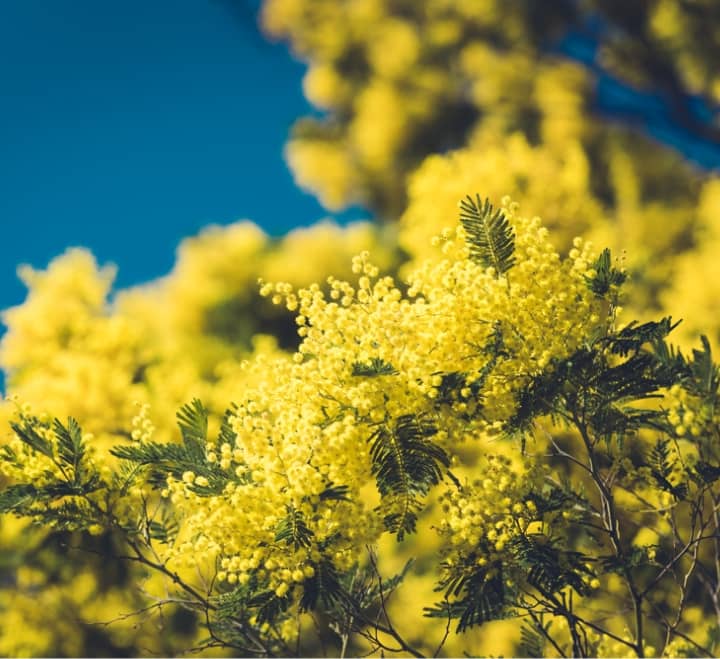
The seedpods from mimosas can present a danger to pets
MIMOSA TREES
While gorgeous to look at, the beauty of the mimosa tree is only skin-deep. The blossoms, feathery and fluffy, look like cotton candy and have an intoxicating scent.
Why are Mimosa trees dangerous to pets?
However, its seedpods are poisonous to pets as they interfere with the neurotransmitters which send signals between nerve cells. Consuming mimosa seeds can result in muscle tremors, spasms, and convulsions. We recommend if you have pets to remove the tree for their safety and your peace of mind.
FRUIT TREES
Everyone loves a good fruit tree. However, some species of fruit trees, particularly apple/crabapple, apricot, cherry, peach, and plum can be toxic to dogs, cats, and horses.
Why are Fruit trees dangerous to pets?
The stems, leaves, and seeds all contain a chemical that once ingested, is metabolized into cyanide. Ingestion of the stems, leaves, and seeds can result in dilated pupils, difficulty breathing, panting, darkened gum and urine, seizures, and shock. It is important to note that the chemical concentration is highest in the fall making fallen leaves more dangerous than living ones.
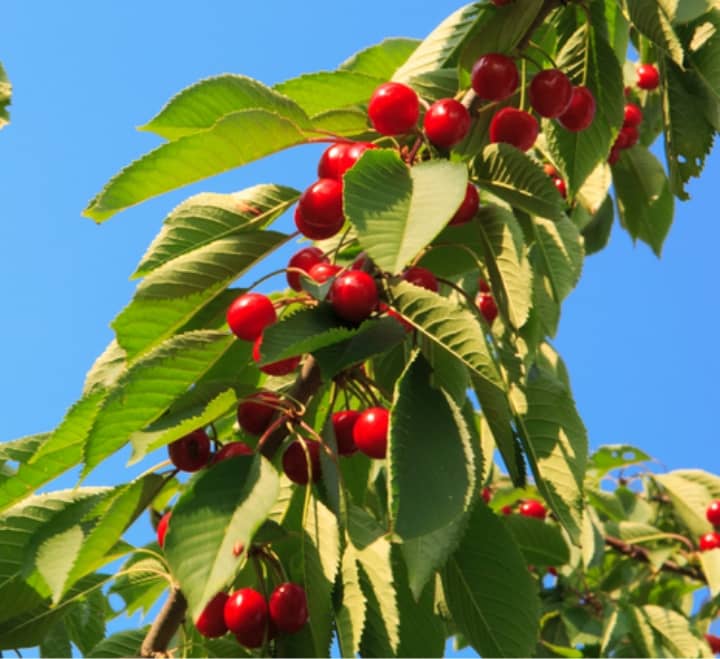
The stems, leaves, and seeds on fruit trees, including cherry, all contain a chemical that once ingested, is metabolized into cyanide.
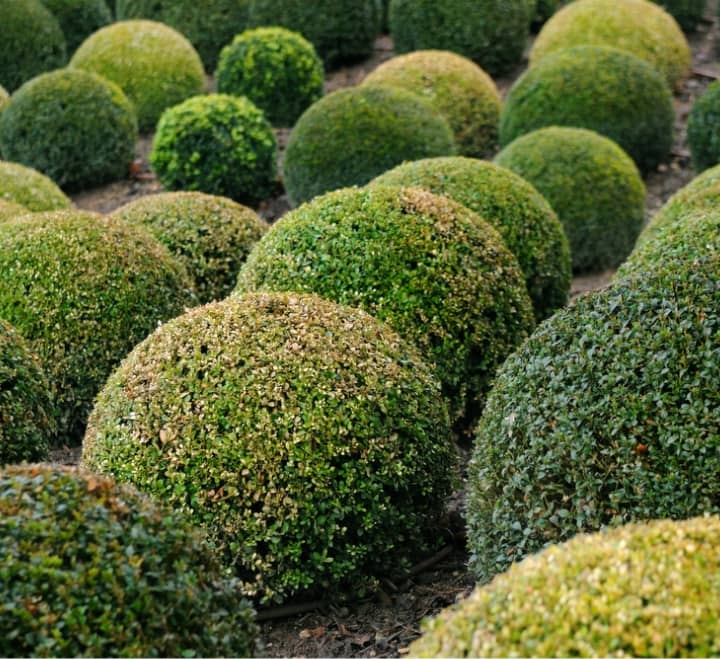
The seedpods from mimosas can present a danger to pets.
BOXWOOD TREES
The boxwood is a flowering evergreen tree and is often used in gardens or yards as shrubs or dividers. The entire tree is poisonous to dogs, both orally and topically, it is best to have the tree removed if they are anywhere a dog will have access to and completely remove the tree.
Why are Boxwood trees poisonous to pets?
A very small amount can be toxic and eating just one leaf can cause significant symptoms. The tree contains alkaloids that if ingested, can cause congestion of the heart, lungs, liver, kidneys, and spleen which can lead to organ shutdown and death. Topical poisoning can result in excessive skin irritation, itching, and redness.
OAK TREES
Surprisingly, the ubiquitous oak tree can present a danger to pets if they ingest the acorns from the tree.
Why are Oak trees dangerous to pets?
Acorns contain a toxic element called tannic acid and when ingested, can cause vomiting, diarrhea, and abdominal comfort. There is also the potential for obstruction due to the size and shape of the acorns. Complete tree removal is recommended in if you have one on your property with pets.
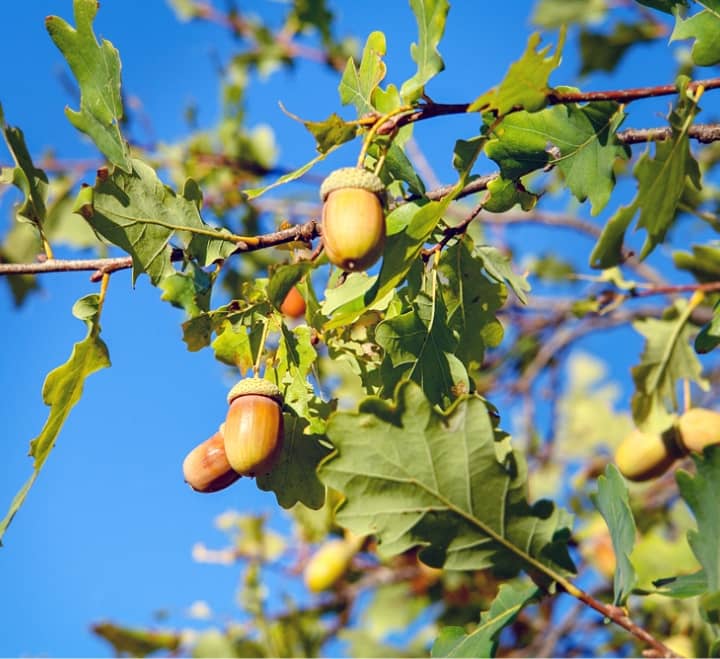
It is important to make sure that dogs do not ingest acorns from oak trees. They have a toxic element and the acorns themselves can cause obstruction.

The red maple is especially deadly for horses.
RED MAPLE TREES
Red Maples are beautiful and popular trees throughout the United States however, their leaves have a hidden danger if ingested. They are especially dangerous for horses and livestock if you have them remove the tree for safety of your animals.
Why are Red Maples dangerous to pets?
While the toxic element of a red maple is unknown, if a dog, cat, or horse ingests the leaves, it can lead to impaired red blood cell function and may cause abdominal pain, change in urine color, darkened eye and mouth membranes, lack of appetite, and lethargy. This tree is especially deadly for horses and if you have them on your property, they should be removed to ensure that livestock are unable to reach them.
BLACK WALNUT TREES
Black Walnut trees are something you and your pet should enjoy while the weather is nice however, as the weather changes and mold can grow on the nuts there is a risk to pets. If you are consistently face with mold issues we recommend complete removal of the tree.
Why are Black Walnut trees dangerous to pets?
The danger with black walnut trees is the potential for mold that grows on the nuts. The nuts are toxic for horses and dogs, but not cats. If ingested, the mold can lead to fluid buildup in the legs, increased heart and respiratory rate, and increased body temperature, among other things.
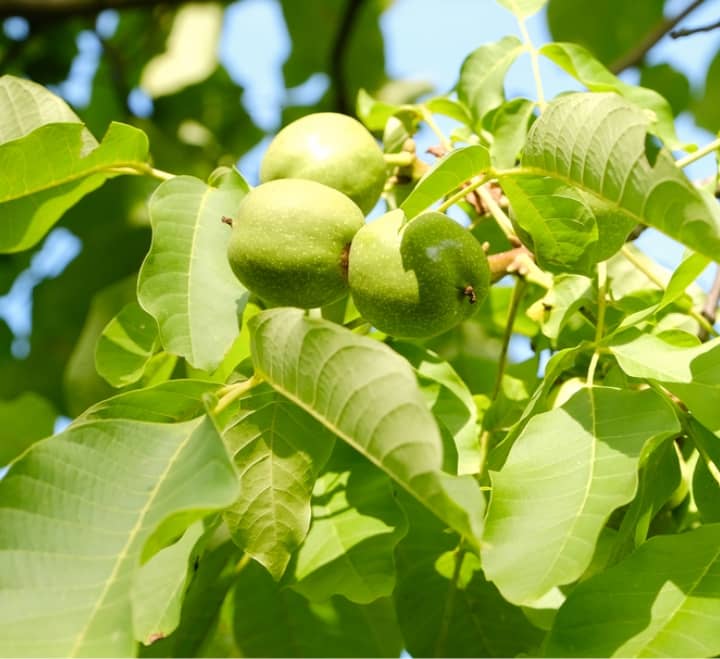
The mold on the nuts from black walnuts can be toxic to dogs.
How to protect your pets from dangerous trees
- Be aware of the names of all the trees on your property that a pet may have access to.
- If restricting access is not an option, you should consider removal to protect your pets.
- If the tree is dangerous to pets, you should ensure that your pet is unable to access the tree or anything that may fall from the tree. Have the branches trimmed so horses, livestock, or pets cannot reach the leaves.
- If you suspect that your pet has had access to or ingested something poisonous from a tree and is exhibiting symptoms, you should contact a vet immediately.
Our Tulsa Tree Services
Contact Your
Tulsa Tree Service
TREES BY JAKE has been providing tree removal services in Tulsa for over a decade. Jake is a Tulsa Certified Arborist and we have a variety of equipment to safely and efficiently remove trees. Call or text us today for your free estimate at 918-500-9955 and don’t forget to check us out on Facebook, Instagram, and Twitter!
